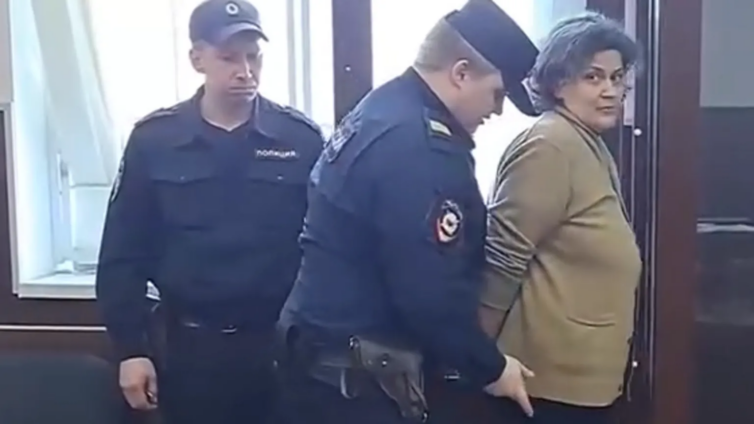Anna Alexandrova, a hairdresser from St. Petersburg, has been sentenced to five years and two months in prison for spreading "fake news" about the Russian army. Alexandrova, who denies the charges, maintains that the accusations stem from a personal dispute over land with a neighbour. The case has drawn significant attention due to Russia's stringent laws that criminalise disinformation, especially regarding the military, introduced shortly after the full-scale invasion of Ukraine in 2022.
The legal battle began when Alexandrova's neighbour reported her to the authorities after she allegedly sent her daughter pictures related to the war in Ukraine. These actions led to accusations that Alexandrova had posted anti-war messages on social media platforms. Despite her defence, claiming that the matter was rooted in a domestic quarrel rather than political dissent, the court found her guilty under Russia's controversial "fake news" law.
Since the onset of the war, the Russian government has ramped up its crackdown on dissent, targeting critics and silencing independent media. The law against spreading "fake news" about the military has been widely used to imprison opponents and activists who express anti-war views or criticise the government's actions in Ukraine. In a separate case, four journalists were sentenced to five and a half years for allegedly working with an "extremist organisation" linked to Alexei Navalny, a prominent critic of President Vladimir Putin.
Anna Alexandrova's case exemplifies the far-reaching consequences of Russia's efforts to control the narrative surrounding the war in Ukraine. Her arrest occurred in November 2023, when she was accused of sharing eight posts across two anonymous accounts on the social media platform VKontakte. Although she denied posting the controversial material, the court's decision has added to the growing list of individuals facing imprisonment under the "fake news" law.
In a surprising twist, it was revealed that Alexandrova had once shared common ground with her neighbour in opposing local deforestation projects, which had led to their falling out. The conflict escalated when the neighbour reported Alexandrova’s posts, which were seen as politically charged, to the authorities. This development underscores the increasingly divisive atmosphere in Russia, where personal disputes are becoming intertwined with political repression.
Russia's legal framework continues to evolve in ways that stifle free expression, particularly in the wake of the invasion of Ukraine. In one of the most high-profile cases, Moscow councillor Alexei Gorinov was given a seven-year sentence for criticising the war during a council meeting in 2022. These actions reflect the ongoing erosion of freedoms in the country, with many observers raising concerns over the future of free speech and political dissent in Russia.


